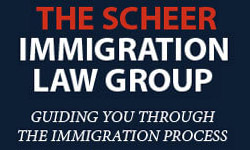The Impact of Public Charge Rule on New Jersey Family-Based Immigration
The complexities of immigration laws in the United States have always presented challenges for families seeking to reunite or build their lives in the country. The introduction of the Public Charge Rule has added another layer of complexity, significantly affecting family-based immigration in New Jersey. This rule — which evaluates the likelihood of an immigrant becoming a public charge — has profound implications for those seeking to obtain green cards through family sponsorship.
Understanding the Public Charge Rule
The Public Charge Rule has been part of U.S. immigration policy for over a century, but its modern interpretation and application have changed over time. Essentially, the rule allows immigration authorities to deny admission or green card applications if they determine that an individual is likely to become dependent on government assistance. The current iteration of this rule, implemented in 2019, expands the criteria used to make this determination. It includes a broader range of public benefits and considers factors such as age, health, income, education, and skills.
The 2019 changes to the Public Charge Rule mean that even temporary use of certain public benefits can negatively impact an immigrant’s application. This includes programs like Medicaid, Supplemental Nutrition Assistance Program (SNAP), and housing assistance. The rule also scrutinizes an applicant’s financial resources, job prospects, and health insurance coverage, making it more challenging for lower-income families to sponsor relatives.
Attorney Susan W. Scheer attended Douglass College at Rutgers University and received her B.A. in 1974. She attended Georgetown University to get her M.A.T. in 1977 and went on to receive her J.D. from Georgetown as well in 1982. Susan is admitted to practice in New Jersey and before the United States Supreme Court.
Susan speaks Spanish, French, Hebrew, and Portuguese.
Impact on Family-Based Immigration in New Jersey
New Jersey, with its diverse and vibrant immigrant communities, is significantly affected by the Public Charge Rule. Family-based immigration — a common pathway for many New Jersey residents — faces new hurdles as a result of the rule’s stringent requirements. Families that have relied on public benefits in the past may now find it difficult to sponsor relatives, fearing that their use of these benefits will be held against them.
The rule creates a climate of uncertainty and fear among immigrant families. Many are hesitant to access essential services such as healthcare and food assistance, even when they are eligible, due to concerns about how it might impact their immigration status. This reluctance can have serious consequences for the health and well-being of individuals and communities. For instance, pregnant women and children might forego necessary medical care, leading to long-term health issues.
Economic Factors and the Public Charge Rule
The economic impact of the Public Charge Rule is also significant. Immigrant families often contribute to the economy through work and consumption. By discouraging the use of public benefits, the rule potentially undermines the economic stability of these families, leading to broader economic repercussions. Families may be forced to work multiple low-wage jobs to make ends meet, reducing their ability to invest in education and skills development, which in turn affects their long-term economic mobility and contribution to the community.
In New Jersey, where the cost of living is relatively high, the financial strain on immigrant families is particularly acute. The rule’s emphasis on income and financial resources means that many hardworking families may not meet the threshold, despite their significant contributions to their communities. This economic pressure can also exacerbate mental health issues, as families grapple with the stress of meeting both immigration and financial requirements.
Legal Challenges and Advocacy
The implementation of the Public Charge Rule has faced numerous legal challenges across the country. Advocacy groups and state governments, including New Jersey, have argued that the rule is discriminatory and undermines public health and safety. These legal battles have led to temporary injunctions and changes in the enforcement of the rule, adding to the confusion and uncertainty for immigrants and their families.
Despite these challenges, advocacy and support from legal organizations like The Scheer Immigration Law Group have been crucial. By providing guidance and representation, these organizations help families navigate the complexities of the Public Charge Rule and explore all available options for reunification and legal residency. Legal assistance ensures that families are informed about their rights and the best strategies to mitigate the impact of the rule on their immigration cases.
Community Impact and Public Health Concerns
The broader community impact of the Public Charge Rule cannot be overstated. The fear and uncertainty it generates extend beyond individual families, affecting entire communities. Public health specialists warn that when immigrants avoid seeking medical care or social services, it can lead to the spread of infectious diseases and other public health crises. This avoidance is not only detrimental to the immigrant population but also to the community at large.
Community organizations and local governments in New Jersey have been working to counteract these negative effects by providing accurate information and reassurance to immigrant families. Outreach efforts aim to clarify which benefits are affected by the Public Charge Rule and which are not, helping families make informed decisions without undue fear. These efforts are vital in maintaining public health and community cohesion.
What are the Requirements to File for U.S Citizenship?
Including Your Spouse and Children in a Green Card Application
Working While an Adjustment Application is Pending
Future Outlook and Policy Considerations
The future of the Public Charge Rule and its impact on family-based immigration remains uncertain. Changes in administration and shifts in immigration policy could alter the implementation or even repeal the rule. Immigrant advocacy groups continue to push for reforms that would make the immigration process fairer and less punitive for families seeking to build a better life in the United States.
Contact The Scheer Immigration Law Group Today We Put Your Family First
Navigating the complexities of the Public Charge Rule and its impact on family-based immigration in New Jersey requires knowledgeable and compassionate legal support. The Scheer Immigration Law Group is committed to assisting families through these challenging times. Our dedicated team of legal professionals understands the nuances of immigration law and is here to provide the guidance and representation you need.
Whether you are seeking to sponsor a relative or need advice on how the Public Charge Rule affects your situation, we are here to help. Contact The Scheer Immigration Law Group today to schedule a consultation — and take the first step towards securing your family’s future in the United States.



 From the initial consultation to the successful resolution of my case, their commitment to excellence was evident. Scheer Immigration Law Group not only provided legal expertise but also exhibited a genuine concern for my well-being throughout the journey.
From the initial consultation to the successful resolution of my case, their commitment to excellence was evident. Scheer Immigration Law Group not only provided legal expertise but also exhibited a genuine concern for my well-being throughout the journey.




